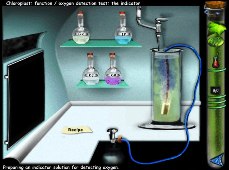 'COLAMA', a virtual lab management software, especially engineered for the Indian university environment, was unveiled at the Tata Institute of Fundamental Research as part of Homi Bhabha centenary celebrations.
'COLAMA', a virtual lab management software, especially engineered for the Indian university environment, was unveiled at the Tata Institute of Fundamental Research as part of Homi Bhabha centenary celebrations.
The product has been developed by a Pune-based private firm, Coriolis Technologies, in collaboration with the School of Technology and Computer Science at TIFR.
"COLAMA helps to significantly reduce the carbon foot print of the university and college computer labs," Basant Rajan, director and CEO of Coriolis told PTI after the demonstration.
"COLAMA allows university lab administrators to harness the benefits of virtualisation, using patent pending technology developed indigenously, without having to deal with its complexities," he said.
Virtualisation refers to a host of technologies that allow computer hardware to be shared transparently between multiple users, thus optimising utilisation and thereby reducing energy waste, Rajan, an entrepreneur-cum-researcher, said.
"The virtual lab management software has unified content and platform delivery," Prof R K Shyamasundar, dean, faculty of technology and computer science of TIFR said.
"The system has successfully completed extended field trials at a leading engineering college and holds out great promise in helping our universities adopt and adapt to cutting edge environment-friendly technologies," Rajan said.
"Adoption of virtualisation has set in motion a quiet revolution within the computer industry. Corporates, driven by cost concerns and corporate social responsibility have turned to virtualisation to significantly reduce the carbon foot print of their computer labs," he said.
"The environmental impact is significant, ranging from reduced energy consumption, to reduction in electronic waste. An institute with 300 computers can save approximately as much electricity as it would take to light up 600-700 homes per year," he said.
Colama allows for a non-disruptive change management as labs adopt virtualisation technologies, starting of using existing hardware and gradually crossing over to using thin clients.
"The paradigm involves assigning individual virtual machines to students as required and managing these life cycles of these machines thus reducing the work load on the lab administrators and reducing capital outlay for the lab," Rajan said.






 © 2025
© 2025